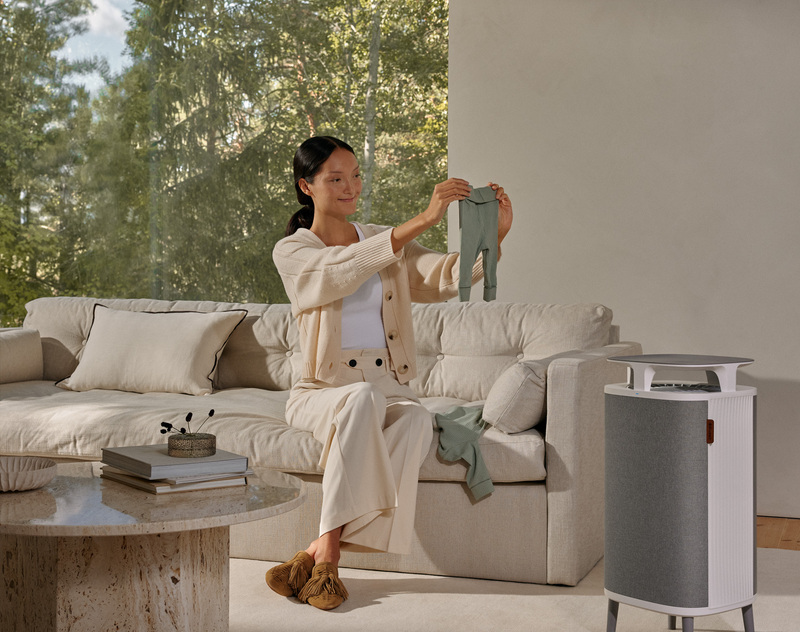Air pollution particles contaminate the air we breathe in this world and are also alarmingly dangerous to unborn babies.
As a foetus in the womb, long before they take their first breath, research has found that a foetus’ internal organs such as the lungs, liver, and brain have a chance of being infected by numerous black carbon particles due to the air inhaled by the mother during pregnancy. It flows through the blood vessels, towards the placenta, and eventually reaches the foetus.
When a parent-to-be is surrounded by poor air quality, this condition strongly equates to increased miscarriages and premature births which can cause neurological disorders and disabilities, low birth weights, and undermine cognitive brain development. The first 1,000 days are the most crucial period in a child’s developmental progress, starting from the formation of the child’s vital organs. At those 1,000 days, the brain begins to develop to be able to process visuals from images, the process of sounds entering through their ears, as well as recognise and remember languages and faces around them.
Pollution is clearly very dangerous for human health, especially for toddlers as they breathe more air than their body weight. Some scientists explain that air pollution is the main cause of 920,000 children’s death under five. They contract asthma, bronchitis, and other respiratory diseases. As research develops, scientists have discovered that air pollution has a high possibility to spawn long-lasting health consequences. This is backed up by Prof Jonathan Grigg at Queen Mary University of London, who first detected air pollution particles in placentas in 2018, as reported by The Guardian. Moreover, another piece of research published in the journal “Lancet Planetary Health”, reported by The Guardian, discovered the examined lungs, livers, brain tissues, umbilical cord blood, and placentas all had air pollution particles, to which the scientists said: “The findings are especially concerning because this window of exposure is key to organ development.”
As agonising as these findings are, future parents need to understand how to look after themselves. Pregnant people tend to be more vulnerable with their immune systems. Further research states that air pollution can shorten life by years. Therefore, the higher the exposure to air pollution is, the greater the reduction in life expectancy.
Some risks that can occur due to exposure to air pollution during pregnancy include:
- Parents-to-be are at risk of hypertension.
- Parents and babies are at risk of lung cancer.
- Babies are at risk of ADHD and asphyxia.
More than 90 percent of the world’s population lives in air pollution that exceeds WHO thresholds. A UNICEF paper released in December 2017 stated that the majority of 17 million babies under the age of one living in Southeast Asia were at risk of breathing toxic air. Alas, avoiding air pollution altogether is difficult and somewhat impossible to do, especially when living in big cities where mobilisation is at its highest.
The thought of staying indoors emerges to keep your family safe and healthy. Contrary to popular belief, staying indoors doesn’t guarantee clean air being inhaled either. Indoor air can be two to five times worse than being outdoors. Unknowingly, our own activities are a source of indoor air pollution. For example, cooking fumes, using chemical-based cleaning agents, and even using perfumes can contribute to poor air quality within your safe walls.
Parents and everyone else shouldn’t be concerned over the toxic air circulating within their homes – the quality of air is within your control. Below are several simple steps for you to take control of the air you and your loved ones breathe:
- Avoid creating a lot of smoke from overcooking or smoking indoors. Instead, put indoor plants as a natural tool to replace carbon dioxide with oxygen.
- Change the choice of household cleaning agents from chemical-based to natural ingredients. The use of chemicals from cleaning fluids to cleaning floors, tables, glasses, and so on can evaporate into the air and be inhaled.
- Pollution circulating, in general, is invisible to the naked eye; don’t blame yourself for being unaware that pollution never stops moving. Using an indoor air purifier with an appropriate clean air value of five cleanings per hour can be the solution. HEPA filter-based air purifiers, such as Blueair, can clean 99.97 percent of the air from the smallest particles – even bacteria and viruses – down to 0.1 microns in size.
Regardless of where you choose to be indoors, remember that is where 90 percent of your time is spent. Blueair purifiers protect from the negative effects of air pollutants. The higher levels of clean air (high CADR) provided by Blueair are the safest environment to foster better growth, thinking, and learning as the lungs and brains of children are still developing. Moreover, worsening asthma and allergies are countered by the HEPASilent filtration technology which delivers a high clean air rate with low noise and high energy efficiency. Not to mention, you will see increased productivity and better sleep – both very much vital for a healthy functioning person.
Simple everyday actions and decisions can protect the well-being of your family. Just as important as the nutritious intake consumed by expectant parents is that they also need to be careful in keeping their environments clean. If cleaning the house feels burdensome, at least use a quality air purifier that cleans the air without the need for extra activities. Make positive adjustments in your home for your new bundle of joy!





